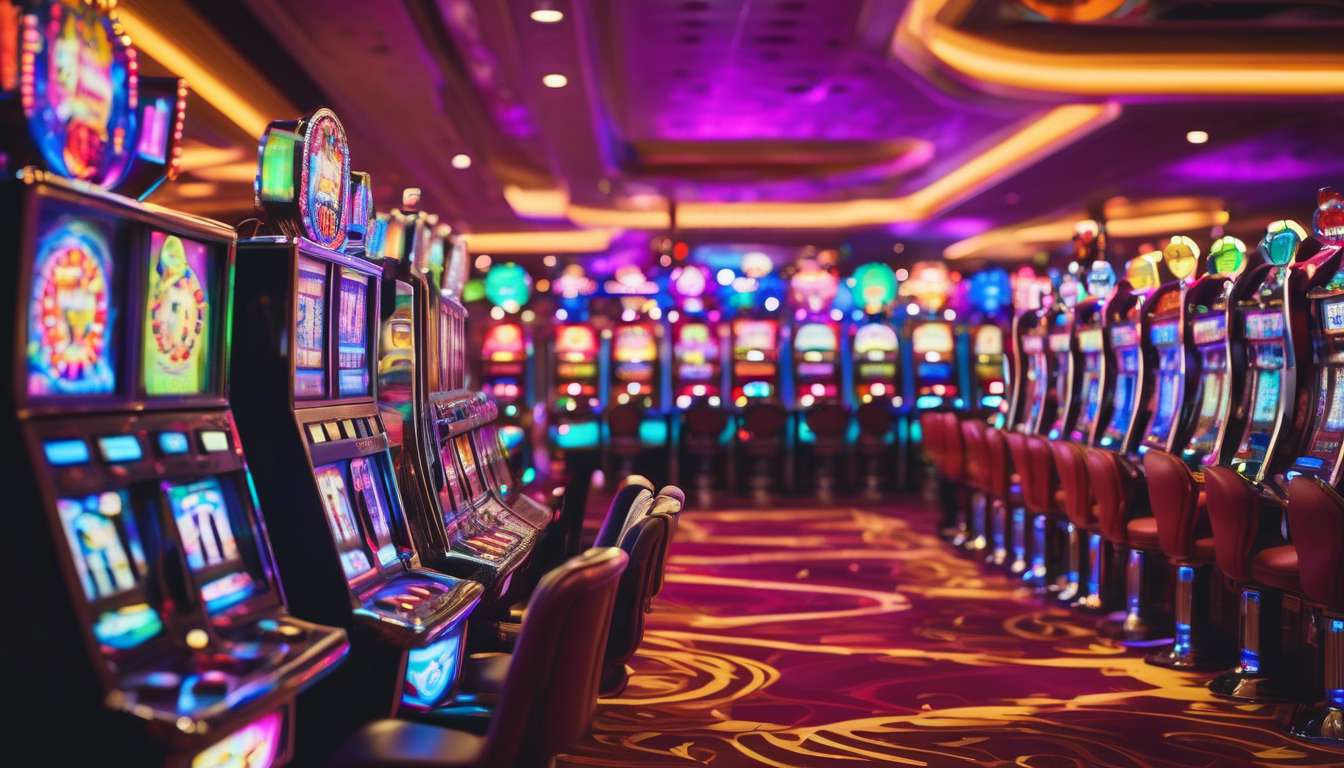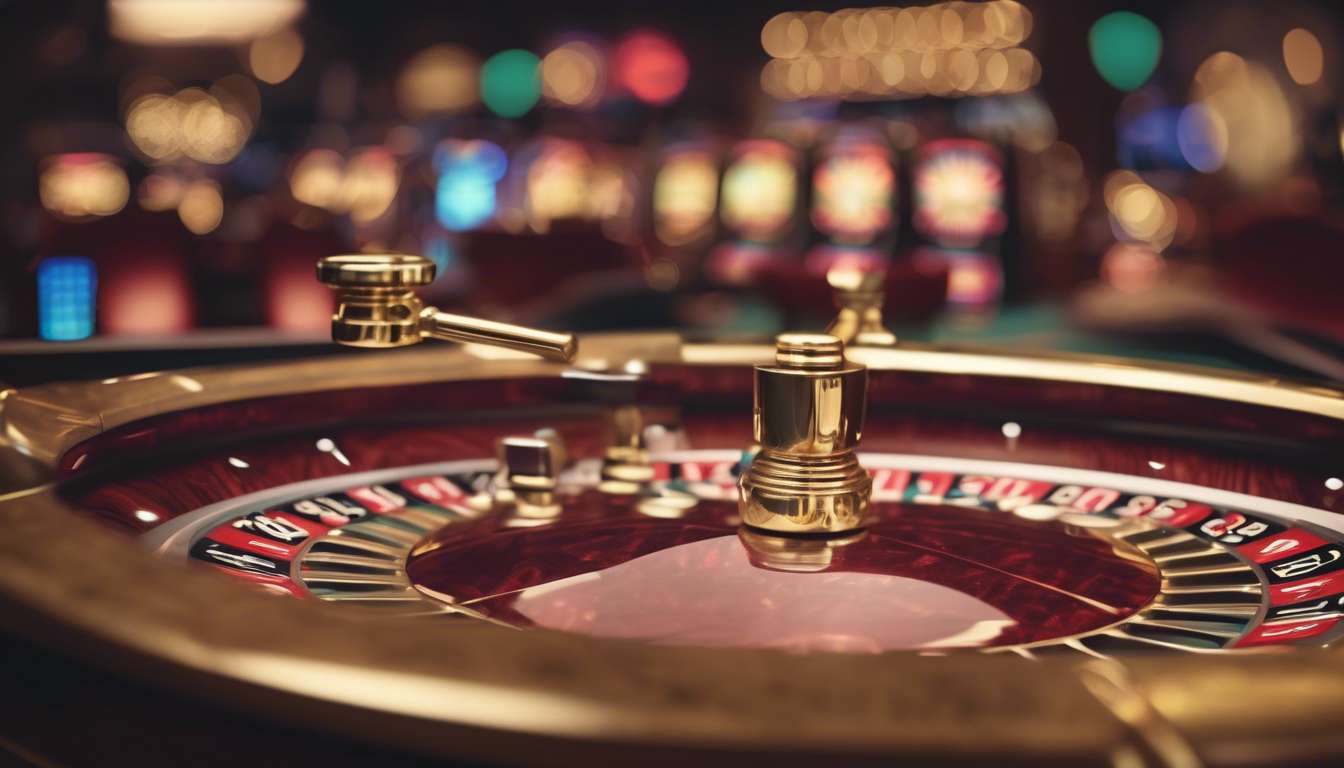As game designers, we find ourselves fascinated by the intricate world of casinos, a realm where skill, chance, and psychology intertwine. Our journey into this captivating domain has equipped us with unique insights that we believe can transform how one approaches casino games.
Together, we have spent countless hours dissecting game mechanics, analyzing player behaviors, and understanding the underlying principles that drive both the thrill of victory and the agony of defeat. In this article, we aim to share our collective wisdom, exploring strategies that not only enhance your gaming experience but also offer a deeper appreciation of the art and science behind casino games.
Key areas of focus include:
-
The Psychology of Decision-Making
- Understanding player motivations
- Recognizing cognitive biases
- Leveraging emotional triggers
-
The Mathematics of Odds
- Calculating probabilities
- Identifying favorable games
- Managing bankroll effectively
-
Game Design Nuances
- Analyzing how games captivate players
- Understanding the role of randomness
- Exploring the impact of game aesthetics
Join us as we unravel these mysteries and reveal how a designer’s perspective can offer you an edge on the casino floor. By examining these elements, we hope to enhance your understanding and enjoyment of casino games.
Player Motivations & Biases
Many players walk into a casino driven by a mix of excitement, the desire to win big, and cognitive biases that influence their decisions. We’re all drawn in by the lights, sounds, and the promise of a life-changing win. But beneath the surface, player psychology plays a significant role.
We often overestimate our chances of winning due to cognitive biases like the gambler’s fallacy, where we believe past outcomes influence future ones. It’s essential to recognize these biases as they affect our risk management strategies.
Game design is expertly crafted to capitalize on our psychological tendencies. The layout of a casino, the design of the games, and even the ambient noise work together to keep us engaged longer than we might have planned.
Understanding this can help us make more informed decisions. When we’re aware of how these elements influence our behavior, we can better manage our risks and enjoy the experience without losing control.
Let’s play smarter together.
Probability & Game Selection
In understanding casino games, we must grasp the probabilities behind each one to make strategic selections and improve our odds. The allure of casino games often lies in their intricate design, a product of both mathematics and player psychology. By recognizing these elements, we can approach game selection with a keen eye for risk management.
It’s not just about picking a game that looks fun; it’s about understanding the house edge and how it affects our chances of winning.
Our community thrives on shared knowledge, so let’s delve into game design nuances. Casino games are crafted to balance excitement and risk, catering to diverse preferences.
- Slot machines may appeal to those seeking quick outcomes.
- Table games like blackjack offer more strategic depth.
By aligning our choices with our risk tolerance and understanding of probabilities, we can navigate the casino environment more effectively.
Together, we can make informed decisions that enhance our experiences and foster a sense of camaraderie.
Bankroll Management Techniques
Effective bankroll management is crucial for ensuring we enjoy our casino experiences without risking financial strain. We all want to feel part of the excitement, but it’s essential to set limits that align with our financial comfort zones.
Understanding player psychology helps us recognize our tendencies and tailor our strategies accordingly. It’s not just about how much we bet but how we manage our funds over time.
Solid risk management practices allow us to make informed decisions despite the enticing nature of game design. To practice effective bankroll management, consider the following steps:
-
Determine your bankroll limits before entering a casino. Decide:
- How much you’re willing to lose.
- When to walk away with your winnings.
-
Balance and discipline are key. Ensure you’re playing for enjoyment, not stress, by maintaining control over your finances.
By mastering bankroll management, we maintain control, savor the experience, and remain part of this vibrant casino community without overextending ourselves financially.
Captivating Game Mechanics
Many casino games captivate us with intricate mechanics that blend skill and chance, drawing us into a thrilling experience. These mechanics, meticulously crafted by game designers, tap into player psychology, ensuring we feel both challenged and rewarded. By understanding the balance between risk and reward, designers create games that keep us engaged and coming back for more.
In game design, risk management plays a crucial role. We find ourselves on the edge of our seats, calculating odds and making decisions that could lead to a big win or a strategic loss. It’s this delicate dance between risk and strategy that keeps us hooked.
Whether we’re at a poker table or spinning slots, we share a collective thrill, united in our pursuit of that elusive jackpot.
The community aspect of gaming fosters a sense of belonging.
- Together, we navigate the ups and downs.
- We learn from each other’s experiences.
This shared journey enhances our connection to the game and to one another.
Role of Randomness in Gaming
Randomness in Gaming
Randomness injects unpredictability into gaming, keeping us on our toes and adding excitement to every turn. As game designers, we understand how randomness can shape player psychology. It creates a sense of anticipation and wonder, keeping players engaged and eager for what’s next. We bond over shared experiences, whether it’s the thrill of a lucky roll or the suspense of a high-stakes gamble.
Incorporating Randomness in Game Design
Incorporating randomness into game design is both an art and a science. We carefully balance it to ensure fairness while maintaining player interest. A well-designed game will offer enough random elements to keep things lively without making players feel entirely at the mercy of chance.
Key Aspects of Randomness in Game Design:
- Balance: Ensuring randomness does not overwhelm skill-based gameplay.
- Fairness: Maintaining an even playing field where all players have a chance to succeed.
- Engagement: Keeping players interested through unpredictable outcomes.
This delicate balance influences how players perceive risk, which is crucial for effective risk management.
Shared Understanding and Experience
Together, we navigate these unpredictable waters with a shared understanding, appreciating the role randomness plays in enriching our gaming experiences. By embracing it, we create dynamic environments where everyone feels part of something larger and more exciting.
Impact of Aesthetics on Experience
In gaming, captivating aesthetics draw us in, enhancing our overall experience and making each moment more memorable. We find ourselves immersed in the vivid colors, engaging sounds, and intricate designs that transform a simple game into a captivating journey.
This isn’t just about visual appeal; it’s a crucial element of player psychology. When we feel connected to a game, our engagement levels rise, and we’re more likely to return, seeking that same thrilling experience.
Game design plays a pivotal role in creating these environments. Designers carefully craft each element, ensuring it aligns with the game’s theme while also considering risk management. Aesthetics can subtly guide us, influencing our perceptions of risk and reward.
For example, a well-designed interface can help us make quicker decisions, impacting our overall strategy. By understanding how aesthetics affect us, we become more informed players, enjoying the sense of belonging in a community that appreciates the art behind the game.
Emotional Triggers in Casino Play
Emotional Triggers in Casino Play
In casino play, emotional triggers can significantly influence our decision-making and overall gaming experience. As we step into the vibrant world of gaming, we’re often unaware of how player psychology is carefully woven into game design.
Game Design and Emotional Engagement
Designers understand the emotions that drive us—anticipation, excitement, and even the thrill of risk. They craft games that amplify these feelings by using:
- Sound
- Light
- Rewarding visuals
These elements are designed to keep us engaged and connected to the experience.
Sense of Belonging and Community
We all crave a sense of belonging, and casinos tap into this by creating environments that encourage:
- Shared experiences
- Camaraderie
By understanding our emotional triggers, we can enhance our risk management strategies, making informed choices rather than impulsive ones.
Responsible Gaming
We’re part of a community of players who appreciate the art and science behind these games. Recognizing the emotional elements at play helps us maintain control, ensuring that our gaming adventures are not only thrilling but also responsible and enjoyable.
Leveraging Cognitive Understanding
To effectively navigate the gaming landscape, we need to harness our cognitive understanding to make informed choices and maximize our enjoyment.
By diving into player psychology, we can uncover the motivations and behaviors that drive us, allowing us to engage with games in a more fulfilling way. Understanding these psychological elements helps us feel more connected to the gaming community, where shared experiences and strategies create a sense of belonging.
Game design plays a crucial role in this journey. Designers craft experiences that captivate us, using psychological insights to keep us engaged while subtly guiding our decisions. Recognizing these elements helps us appreciate the artistry behind games and enhances our ability to strategize.
Risk management is another key aspect. By assessing risks, we can make smarter decisions, balancing potential rewards with the likelihood of loss. This skill not only improves our gaming experience but also strengthens our bonds with fellow players as we share tips and strategies that foster a supportive community.
What are some ethical considerations game designers face when developing casino games?
Ethical Considerations in Casino Game Design
When designing casino games, ethical considerations are crucial. We must ensure:
- Fairness: Games should be designed to provide equal chances of winning for all players.
- Transparency: The rules and odds should be clear and easily accessible to players.
Protecting Players from Harm
It is essential to:
- Avoid exploiting vulnerabilities that could lead to financial or emotional distress.
- Refrain from promoting addictive behaviors through game mechanics or marketing strategies.
Prioritizing Responsible Game Design
By focusing on responsible game design, we:
- Uphold integrity within the industry.
- Safeguard the well-being of players.
Benefits of Adhering to Ethical Standards
Adhering to these standards helps us:
- Create an environment where gaming can be enjoyed responsibly.
- Ensure that players experience gaming without negative consequences.
In summary, ethical game design not only protects players but also enhances the reputation and sustainability of the gaming industry.
How do technological advancements, such as virtual reality, influence the future of casino game design?
As technology evolves, like virtual reality, our team sees immense potential in reshaping casino game design. These advancements offer immersive experiences, captivating players in new ways.
By integrating VR, we can create more engaging and interactive games, enhancing player enjoyment and satisfaction.
Our focus remains on embracing these innovations responsibly, ensuring that ethical considerations are at the forefront of our design process.
We are excited about the future possibilities that technology brings to casino game design.
What impact do regulatory changes have on the innovation and development of new casino games?
Regulatory changes play a significant role in shaping the innovation and development of new casino games. They can impact the rules, formats, and features that game designers can incorporate.
By enforcing certain guidelines, regulations can both challenge and inspire us to think creatively within set boundaries.
Adapting to these changes keeps us on our toes, prompting us to come up with fresh ideas that comply with the evolving landscape of the gaming industry.
Conclusion
In conclusion, understanding the intricate strategies and insights from game designers can greatly enhance your experience at the casino.
By recognizing player motivations, mastering probability, managing your bankroll effectively, and appreciating the role of randomness and aesthetics, you can approach casino gaming with a more informed perspective.
Remember, leveraging these cognitive tools alongside captivating game mechanics and emotional triggers can elevate your gameplay to new levels of enjoyment and success.
Happy gaming!




